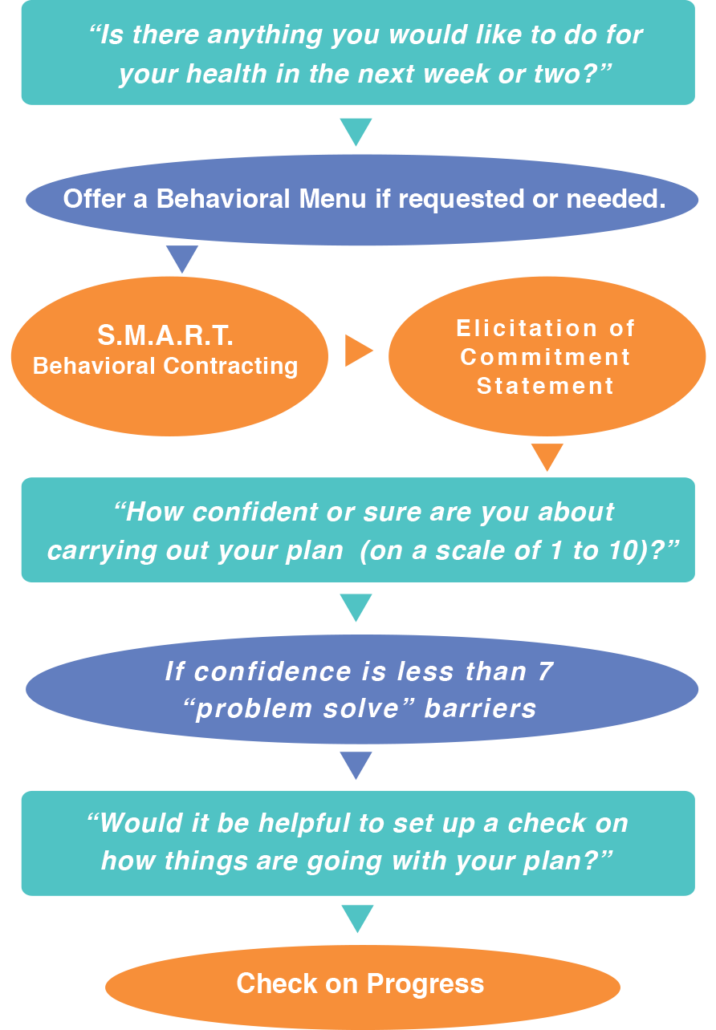Brief Action Planning
Overview
Brief Action Planning (BAP)1, the foundational eight core competencies of Comprehensive Motivational Interventions (CMI), was developed by Steven Cole, with contributions from Mary Cole, Connie Davis, Damara Gutnick, and Kathy Reims.
BAP is an innovative, evidence-based, efficient and effective self-management support tool and technique based on the principles and practice of Motivational Interviewing (MI)2.
BAP functions as a short form of MI and is appropriate to use for initial motivational work with all individuals, regardless of readiness for change. Individuals engaged in persistent unhealthy behaviors, however, often require more advanced emotional response skills, skills for understanding, or more technical motivational skills. Research indicates that MI interventions show particular efficacy for angry, resistant, or ambivalent individuals; there are signals from this research, however, that these complex MI approaches may be less useful, and possibly even counter-productive, for individuals at higher readiness. BAP may be especially appropriate for those patients or clients at relatively higher levels of readiness for change, who do not need to explore or resolve ambivalence about change.
CMI online courses and workshops help learners master and flexibly integrate BAP with more complex communication skills and, ultimately, advanced MI skills into a seamless clinical framework. CMI maximizes efficiency and effectiveness to facilitate healthy behavior change across all levels of readiness for change.
Three Core Questions
Brief Action Planning is organized around three core questions:
- “Is there anything you would like to do for your health in the next week or two?” (what, when, where, how often, etc?)
- “On a 0-10 scale of confidence, were 0 means no confidence and 10 means alot of confidence, about how confident are you that you will be able to carry out your plan?” (If confidence <7, initiate collaborative problem-solving.)
- “Would you like to set a specific time to check in about your plan to see how things have been going?”
Five Additional Skills
- Presentation of a Behavioral Menu
- SMART Behavioral Planning
- Elicitation of Commitment Statement
- Collaborative Problem Solving
- Follow-Up
Decades of Research
Brief Action Planning rests on a solid foundation of decades of research in numerous areas of behavioral, psychological and communication research:
- Self-Management Support Research
- Self-Efficacy Research
- Motivational Interviewing Research
- Transtheoretical Stage of Change Research
- Rogerian Psychology
- Operant Conditioning
- Cognitive-Behavioral Theory/Therapy Research
- A-theoretical Psychotherapy Research
- A-theoretical Communication Research
Links & Downloads
top of page ↑
1. BAP ™ is a registered trademark of Steven Cole. It may be used without permission for patient care and research.
2. Miller W, Rollnick S: Helping Individuals Change

